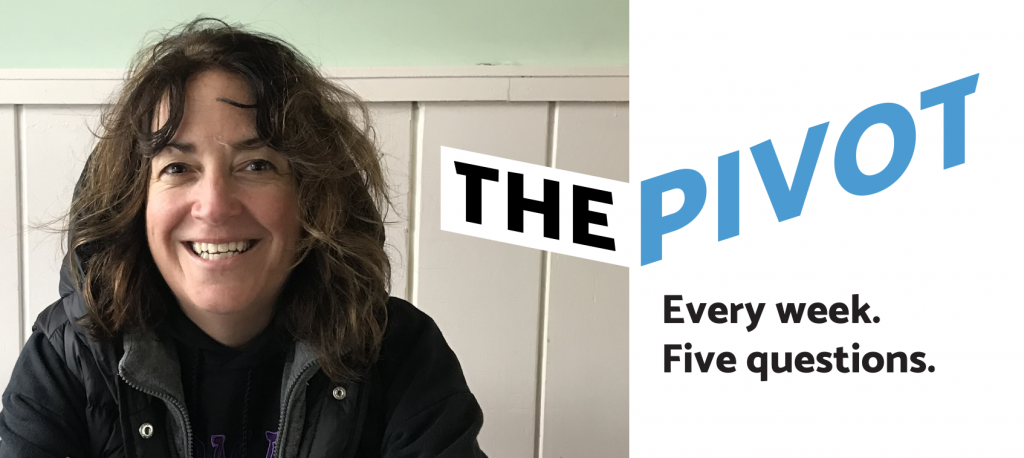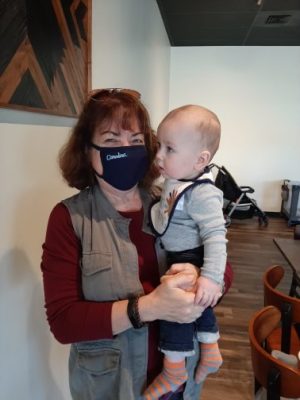The Pivot: Dr. Dorothy Cilenti

Dr. Dorothy Cilenti connects academics with practitioners for better public health.

What’s your role in public health?
At the Gillings School, I’m an associate professor in the Department of Maternal and Child Health (MCH), where I direct the National MCH Workforce Development Center. I’ve also worked in local and state public health agencies in North Carolina for more than 20 years. I’m primarily interested in improving public health systems for women, children and families.
These days, I spend a lot of time engaging with people who deliver public health services at the community and state level. I learn about their challenges and opportunities and use that insight to inform the trainings and technical assistance we offer through the Workforce Development Center and the Maternal Health Learning and Innovation Center — because the resources have to match the needs of the workforce.
Ultimately, we improve maternal and child health outcomes by building capacity among professionals in the field and helping them adapt strategies to fit their local, unique problems.

Can you describe your focus area in one sentence?
I see my main role as connecting academics with the practice community.
Right now, I’m serving as the interim public health division director for Wake County. I took the job in February of this year, right at the height of COVID-19 cases and as vaccines were being rolled out.
Being at a school of public health while practicing day-to-day provides the best of both worlds. I see constant real-life examples of the COVID pandemic and the ongoing Medicaid transformation, and all of that informs the academic side of my work.
In the medical sphere, it’s standard for medical providers to conduct research, teach and practice in a clinical setting. I think we should have the same opportunities for public health researchers. It just makes sense to combine academics and practice for the benefit of both.

What brought you to public health?
I started in UNC’s dual-degree Master of Public Health / Master of Social Work program. I had a class with Dr. Leah Devlin, who was the Wake County Health Director at the time. She got me curious about local public health.
Right after graduation, I started as a program manager in Wake’s health department and dived into getting grants and launching new programs. I loved collaborating directly with people and organizations to focus on the health of whole populations.
Then came more state-level work and jobs as the local health director for several counties. I returned to Gillings for my doctoral degree and worked with the School’s North Carolina Institute for Public Health. I administered their local health department accreditation program for several years — it was one of the first in the country. It’s now a national program, but it all started right here.
I’m still innovating; still finding fresh ways to work with people. Every day is new. Thirty years in, I still love what I do.

How have you pivoted in response to the coronavirus pandemic?
As an interim public health division director, I’ve witnessed the extent to which public health had to build a whole new infrastructure to address COVID-19. In Wake County, we had solid preparedness plans in place, but we underestimated the sheer amount of resources we would need when this pandemic hit. We had to outsource testing, partner with the private sector and bring on 150+ new staff to handle contact tracing and vaccine distribution. We didn’t anticipate starting from the ground up in the middle of an emergency.
I hope we never have to do that again. Instead, we need to maintain long-term resources to respond to complex public health crises, because this one will not be the last.
On the plus side, I think the world became more aware of social determinants of health and systemic racism during the past 1.5 years. These concepts aren’t new to folks in public health, but they’ve become more recognized in other sectors and that will make it easier to keep focus where it belongs. It’s undeniable that the same people are disproportionately affected every time, during every crisis.
I will say, after years of public health being underfunded in the U.S., this pandemic and the resources being invested in it feel like a tsunami. As the pandemic starts to abate and people refocus on all the important public health work they put to one side while in crisis mode, it’s like watching the ocean come in really fast. It’s wave after wave, and there are positive opportunities there, but no one has really been able to stop and catch their breath.
That’s not to say I’m not proud of all we have accomplished! In Wake County, we secured funding to promote health equity and health literacy — all related to COVID-19. Projects like the Live Well Wake initiative will address ongoing disparities in housing, transportation, employment and access to health care long after this pandemic is over.

Who are you when you’re at home?

Dr. Dorothy Cilenti wears a Carolina mask while holding her grandson.
I work a lot. Work is life, life is work — but my work brings me so much joy!
I also love to be outside, despite the N.C. humidity. I walk, hike, ride bikes and just enjoy nature. I’m a big reader, and my book club is discussing The Midnight Library right now. It’s funny, even book club had to pivot during the pandemic — we switched to virtual meetings and started choosing shorter books because everyone’s free time dried up.
Also — finally! — I’m seeing my travel calendar fill up again. I’m planning to visit Yosemite and Amsterdam this fall. Usually, between work and my personal life, I travel almost every month. Now, I haven’t been on a plane in a year and a half. My only recent travel has been to the N.C. mountains — that’s where my first grandchild lives.
